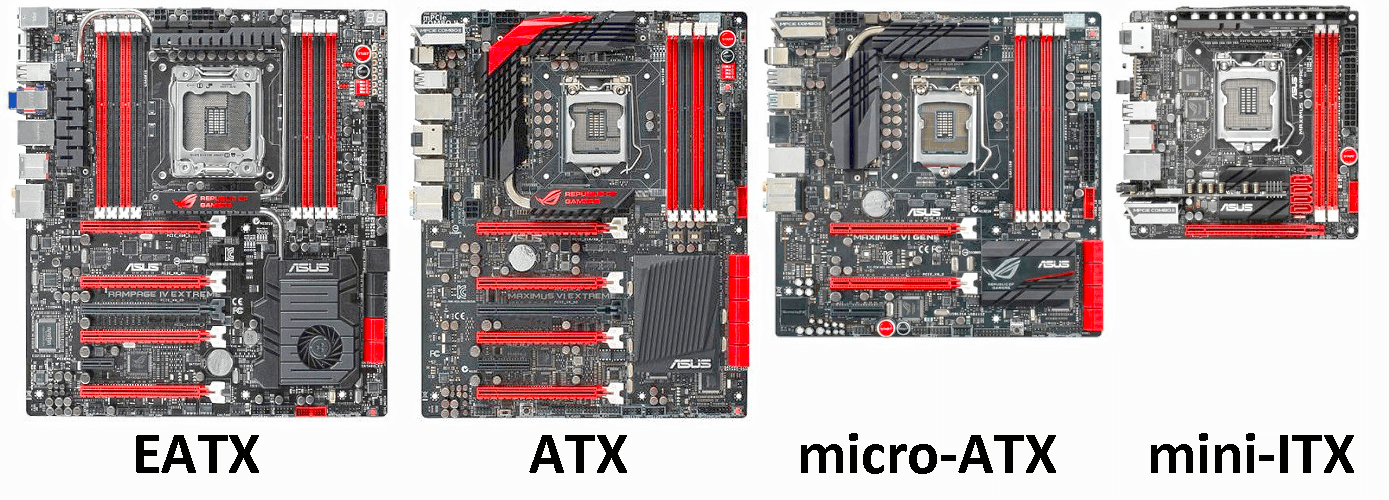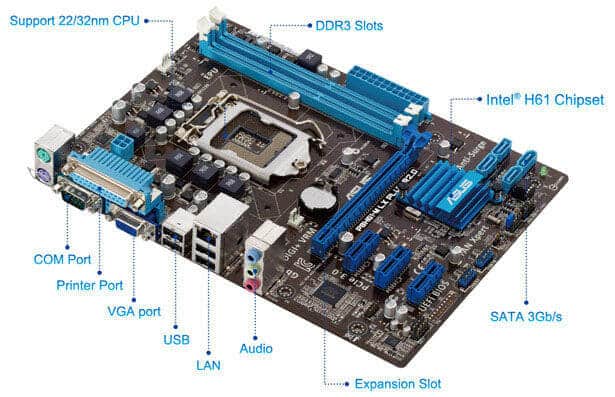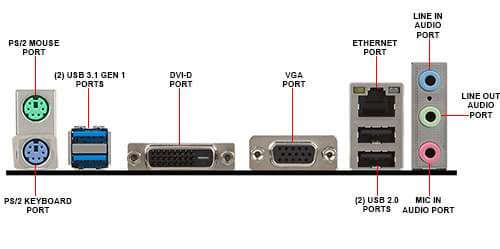In our haste to get the right graphics card and an outstanding processor, we forget that the motherboard is the most crucial of them all. It justifies its name completely because every part plugs into it. So, how can you be careless or lax while choosing a motherboard?
We must intimate you beforehand – there are many things you should consider while buying a motherboard and that’s why it requires patience. You don’t have to freak out, though. We are going to list out all the important factors so that you create a checklist and choose the right option.
1. Check the Size

Many users we spoke to didn’t even know that motherboards are of different sizes. There are standard motherboards, yes, but there are also micro and mini sizes. There are many other sizes too, but these are the ones you should be aware of. Check which case you want and go through the specifications. This will help you decide the right size for your motherboard.
Why is size so important, you may ask. That’s because the size decides the number of ports that you will have access to. Small boards do not have many ports, but large ones do. The smallest of motherboards only have space for PCIe and RAM along with other basic connectors. What about the rest? If you ever want to upgrade and add a new connection, you won’t have slots to do it! That’s why you should think ahead and take a call accordingly.
2. Check the Compatibility

This is pretty straightforward and most obvious. Your processor (CPU) and the motherboard of your choice should be compatible. Otherwise, there’s absolutely no point!
To check compatibility, you should take a look at the motherboard chipset, the CPU socket, and the type of processor (Intel or AMD).
- Processor type: There are only two types of processors: AMD and Intel. One motherboard does not work with the other. So, Intel users must buy Intel motherboards, and AMD users must choose AMD motherboards.
- Motherboard chipset: Every motherboard socket has multiple chipsets. But, you mostly have to focus on the overclocking feature. If you can overclock your processor, choose an overclocking chipset. Otherwise, you can just go with the non-overclocking one.
- CPU socket: Sockets differ from one processor to the other. So, unless you compare and check, you won’t know if you are getting the right one. Remember, even within Intel and AMD, there can be compatibility issues because not all Intel processors will fit Intel motherboards.
3. Check the Ports

This is the last but not-to-be-ignored part of choosing a motherboard. You need to ensure that you have enough ports for all your needs. This includes USB ports, HDMI, DVI, SATA, PCIe Lanes, DIMM Slots, etc. Do your homework thoroughly and list out everything that you need. If a port is missing, you will never be able to use the related functions. That’s why this is not a decision that you can take off-handedly. Choose a motherboard that has enough ports for all your requirements such as gaming, memory, viewing, graphics card, and so on.
4. Check the price
Price is a major consideration because, in your excitement, you may end up choosing something really expensive. If you can afford a high-end motherboard with multiple ports and features, that’s great. You can skip this part completely. But, we don’t see why anyone should spend unnecessarily whether they can afford it or not.
So, our recommendation is that you avoid including ports or features that you don’t need. For example, there is built-in Wi-Fi. If you are using a wired connection, you do not need built-in Wi-Fi at all. The same goes for many high-end ports. You can get Thunderbolt 3 instead if you are worried about future upgrades. Besides that, though, you don’t need anything over-the-top.
Choosing a motherboard may seem like a tedious process, but it is well worth the effort. It is a one-time process that will ensure that you have a system that you love! Doesn’t it deserve your time then? It definitely does!

